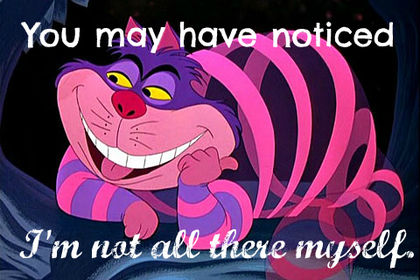Roleplay
From Gender and Tech Resources
There are many reasons for us for consciously creating multiple, fake, anonymous or pseudonymous identities online (without becoming the petty tyrants we fight):
- Engaging in the present with no need for past or future references.
- Being who you are naturally and freeing your speech.
- Dreaming another you into being for gaming, hobbies, (online) roleplay, trolling the trolls, defense from mass surveillance, confusing surveillance, etc. in a way that it doesn’t automatically become a part of your finger- and footprint.
- Being more resilient online.
- Career actualisation, increased individuality, autonomy and freedom by separating professional and private information.
- Exploring abandonment of being, and gaining recognition on how your "usual identity" can be a trap.
- Challenging yourself and engaging at the edge.
- Feeding (r)evolution and self-authority.
This page focuses on roleplay for teh lulz. Love it or hate it, the Anonymous mask has morphed under many guises. Starting life as the face of an audacious revolutionary, it became a trickster political disguise turned corporate nightmare. According to some, it’s future as a potent image remains in the balance, but the story is still ongoing. [1]
Contents
Choose an avatar
- Become comfortable with the context a character is for if you have time to do so. Each context has it's own "flavour" and part of having fun with your character is knowing what is and what isn't possible within a particular (set of) context(s). The context can also be a source of inspiration for picking your character.
- Ask around. Give those elicitation skills a whirl. Find out what others are interested in playing. Having a diversity of skills and characters in the game is key to having a great time. So ask around, find out what others are interested in playing.
- Do not play a character you feel uncomfortable with. Not even if it is "missing".
- Great if you challenge yourself. Not so great if it stresses you out unnecessarily.
Give your avatar a story
An increasing number of psychologists argue that people living in modern societies give meaning to their lives by constructing and internalising self-defining stories. Whatever, the practice of "story telling for identity" seems much older to me and starting a new avatar with a story makes it a lot easier to maintain the role. You can make up your own story, use a "known" person’s story (in another context), or that of a god or goddess (in another context than where he or she originated), a "group identity" like anonymous, ...
Refine character
Opening and closing doors
Freedom of speech
Plausible deniability
Simulation games
Games and simulations can be powerful tools for exposing the nature of problems and exploring scenario planning paths, communication and are a structured approach to instruction, not necessarily excluding each other.
The advantages gaming and simulations offer over traditional "teaching" are:
- putting emphasis is on questioning over answering on the part of players
- providing opportunities to examine assumptions and implications underlying decisions.
Some simulations and plays can be done individually, others are a group activity where players cooperate or compete, some are run to explore in what ways we can get to a desired state, some to observe the effects of start and boundary condition changes.
Some rules are explicit, others are implicit and to be discovered. Debriefing or retrospectives after play is a usual and valuable component, particularly if it's an educational game/simulation. For this reason many multi-purpose simulations include observer roles.
When a scenario is added to the game, it becomes a simulation. For an example of that see Scenario planning Simulation: The Alpha Complex.
Resources
Social Engineering
- DEFCON 14: Beyond Social Engineering: Tools for Reinventing Yourself https://www.youtube.com/watch?v=S-FPJ6lpRYU
- Information Elicitation via Social Engineering http://capec.mitre.org/data/definitions/410.html
Perceptual control theory
- PCT—Yeah? So What?! http://www.iapct.org/festschrift/carey.html
- Non-computer-based demonstrations http://bluwiki.com/go/Perceptual_control_theory/Demonstrations#Non-computer-based_demonstrations
Related
- Creating a new online identity
- Psychological warfare
- Scenario planning
- Self-dox
- Installing linux
- Trolling
References
- ↑ A History of the Anonymous Mask: A 10-step guide to the turbulent past of the Anonymous mask http://www.dazeddigital.com/artsandculture/article/16360/1/a-history-of-the-anonymous-mask
